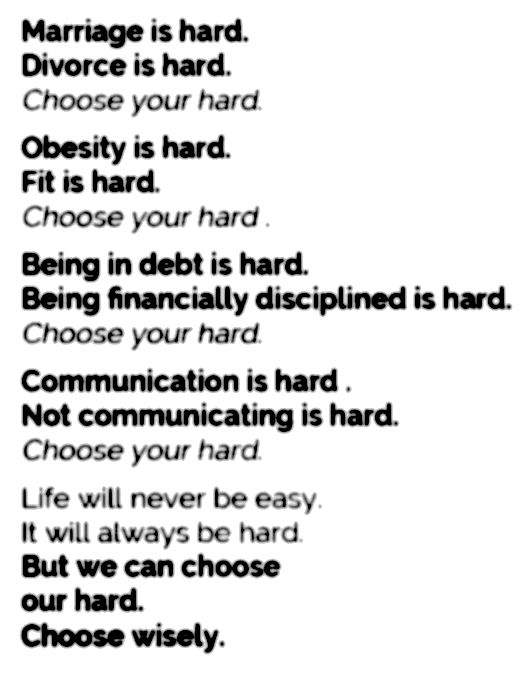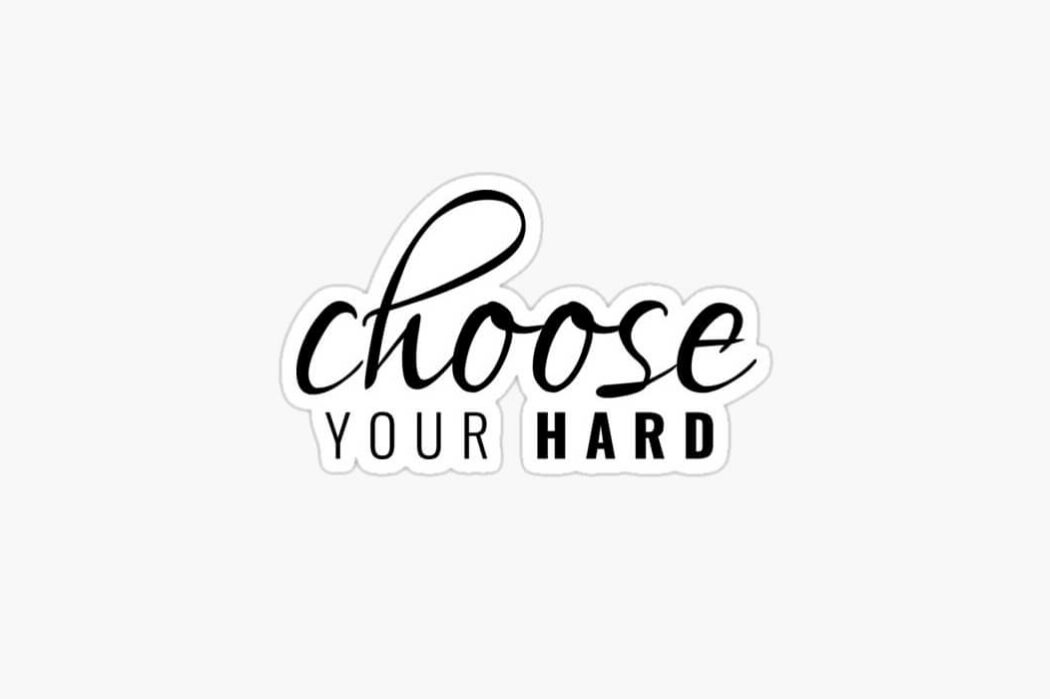In the day to day grind these little gem’s flip past in Facebook streams and Whatsapp conversations and through the lens of our personal experience, we adapt and adopt the bites of data applying to ourselves what we deem applicable to our lives and discarding the rest. It thus comes as no surprise that when other poor human beings venture into our neatly formed perceptions of reality that all bets are off on what we had quietly assumed can now be challenged. Naturally and inherently when confronted with alternative perceptions there is springloaded resistance. Anger, mistrust, avoidance, guilt, shame and a string of other strong emotions are the frequent indicators that some version of your reality has been, or is being, challenged and that a response is required.
Where often it is not.
But herein lies an ability to choose what you will accept and will not accept. Invariably we choose the narrative that makes the most sense to our conscious and sub-conscious, be it true or not.
When you deep dive into personal growth as a topic, It’s in these juxtapositions of alternative realities and perceptions that “our truth” is being formed and reformed and also where that personal growth has the biggest opportunity to develop.
We are inherently learning creatures absorbing snippets of data throughout our experience of life and nowhere is this more prevalent and apparent than through our social human interactions and experiences with “others”.
 Falling prey to our automated emotional responses and those social-emotional challenges simply closes a door on aspects of that personal development as all that magic only happens when you allow yourself to learn, to understand, and perhaps even to choose to accept an alternative narrative or two.
Falling prey to our automated emotional responses and those social-emotional challenges simply closes a door on aspects of that personal development as all that magic only happens when you allow yourself to learn, to understand, and perhaps even to choose to accept an alternative narrative or two.
The deeper realisation in what you choose is entirely up to you.
This is all your show my friend.
The fact is that nobody is watching, nobody is judging and largely because nobody cares.
Look carefully enough and you will see that everyone including yourself is stuck in a version of events and reality that centres around you.
If you feel confronted by that statement good, it’s there to confront you.
Harsh and insensitive as it sounds we are caged in our perspectives of the world and will be until the day we die. Everything we feel, think and do is our own unique journey through the world where we connect to the journeys of “others” only in moments of presence and the rest of the conflicts or harmonies survive only in our minds.
These points of perception contention are prevalent throughout our lives and there is just no avoiding them. There is only acceptance.
Within the “recovery community” or more accurately with the community of individuals that call themselves “in recovery,” we will find an entirely new universe of beliefs and disbeliefs. Of things, you can and should do, or the musts, won’t’s and can’t’s and new rule books around that thin grey line of personal perception.
My version of recovery is fundamentally different to yours, accept it.
While we may collectively wear the same badge we are all still individuals on a life journey.
Our interpretation of our lives may contain many intricate contributing factors to remedy our life path in that “find recovery” or not. The only constant is that we are all vastly different teachers of ourselves on a great journey of our lives to the grave.
Right or wrong we choose our paths.
We choose to get into abstinence, 12 step belief systems, psychotherapeutic care, psychotropic substances, alternative lifestyles and perpetuate these paths as long as they keep serving us, the outputs that we want or what you want. We consciously and subconsciously choose that destructive relationship, the gram of cocaine, we seemingly choose to say fuck it, I’m having a beer! In that moment the behaviour serves us as it did in the past.
In reality our minds automatically wire themselves in the direction they have been taught to focus overtime and changing that focus can only come from an internal willingness to change. It does not really matter how strong the external factors are. The universal goal of “recovery” as a concept is that of “restoring something” and that particular something is unique to each person’s journey.
Something was lost, something was taken away, lost or broken but that “something” is missing in terms of our “should be” personal perception of the world and could have happened long before our adult concious formed.
Our response to that missing something is often dramatic manifestations or reactions or symptoms such as substance addiction, depression, self-harm etc. And can you blame us, nobody wants to feel the pain we are wired biologically to protect the wellbeing of the meat sack in which we live and if the mind is off balance it makes decisions of its own accord toward “recovery” or “harmony” or “stasis” or “equilibrium” or whatever the fuck you want to call your peace.
We seek our “recovery” in whichever format it arrives, but the body and mind don’t care if it’s right or wrong, legal or not nor what your moral obligations or beliefs are but the universal journey aligns towards fixing that missing inner peace.
New realities are very hard to accept when the old reality establishes its “known routine” or what psychologists might call “coping mechanisms”. Those “coping mechanisms” and “routines” be they, drugs, alcohol, sex, relationships or food, work, depression etc all form a new relationship with our identity.
Choosing Impermanence
The concept that “nothing that you do or say on this speck of dust is of any real significance” may seem nihilistic at first glance, but it is actually a liberating and empowering perspective. It reminds us that we are not defined by our achievements, our possessions, or our social status. We are simply beings in this vast universe, experiencing life as it unfolds.
This perspective can be particularly helpful for those struggling with addiction, anxiety, depression, or other mental health issues. These challenges can often make us feel trapped in a cycle of self-doubt and self-blame. We may feel like our thoughts, feelings, and actions are all that matter, and that our mistakes and failures define us.
But if we remember that our existence is about experiencing life, rather than achieving perfection or avoiding pain, we can start to let go of the self-judgment and self-criticism that keep us stuck. We can begin to accept ourselves as imperfect but worthy beings, deserving of love and compassion.
Buddhist philosophy offers many teachings that support this perspective. For example, the concept of impermanence reminds us that everything in life is in a constant state of flux, including our thoughts and feelings. This can help us see our struggles as temporary and fleeting, rather than permanent and all-consuming.
Similarly, the practice of mindfulness encourages us to stay present and aware of our thoughts and feelings, without judgment or attachment. By learning to observe our thoughts and feelings without getting caught up in them, we can cultivate a sense of spaciousness and perspective that allows us to respond to life’s challenges with more clarity and ease.
Ultimately, the message of this concept is one of hope and inspiration. No matter what struggles we may face in life, we are always capable of experiencing joy, love, and connection. We are all unique and valuable beings, with our own gifts to share with the world. So let us remember to enjoy every moment of our existence, to appreciate the beauty and wonder of life, and to treat ourselves and others with kindness and compassion.







